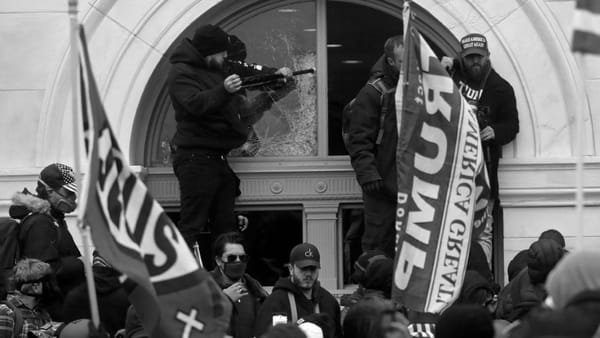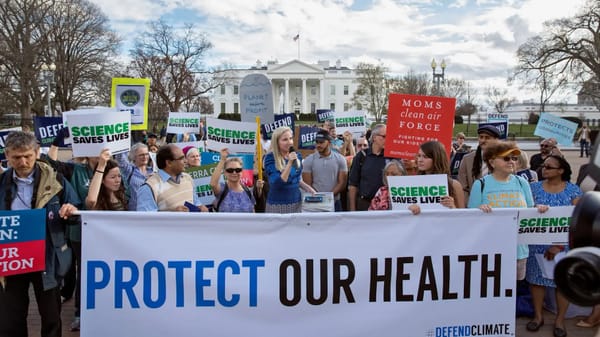The U.S. Was Never Founded as a Christian Nation
Today, some argue that the Founders were covert Christians who intended for the United States to embody biblical values. However, a closer look at their writings, personal beliefs, and the laws they established reveals a vision far removed from the evangelical narrative.

A Nation Divided by a Myth
Picture this: It’s 1787, and delegates from 13 states have gathered in Philadelphia to draft a Constitution defining a fledgling nation. Heated debates fill the air, but one subject conspicuously absent is religion. Contrary to modern Christian nationalist claims that the United States was founded as a Christian nation, the Founding Fathers crafted a government without mention of Christianity, Jesus, or the Bible.
Today, some argue that the Founders were covert Christians who intended for the United States to embody biblical values. However, a closer look at their writings, personal beliefs, and the laws they established reveals a vision far removed from the evangelical narrative.
The Founding Fathers: Deists, Skeptics, and Secular Thinkers
While Christianity was culturally dominant in 18th-century America, many Founding Fathers rejected its orthodox tenets. Leaders like Thomas Jefferson, Benjamin Franklin, and James Madison adhered to deism—a belief in a Creator who does not intervene in human affairs—and expressed skepticism toward institutionalized religion.
Thomas Jefferson, for instance, famously created the Jefferson Bible, a version of the New Testament stripped of miracles, divine claims, and the resurrection. In an 1819 letter to William Short, Jefferson revealed his personal creed:
“I am of a sect by myself, as far as I know.”
Similarly, Benjamin Franklin was a self-described deist. In his 1790 letter to Ezra Stiles, Franklin stated:
“I have some doubts as to Jesus Christ’s divinity, though it is a question I do not dogmatize upon.”
John Adams further dispelled the notion of a Christian nation in the 1797 Treaty of Tripoli, which explicitly states:
“The Government of the United States of America is not, in any sense, founded on the Christian religion.”

Religion and the Constitution: A Secular Framework
The Founding Fathers’ commitment to religious liberty is most evident in the Constitution, which establishes a clear separation between church and state. The First Amendment’s “establishment clause” prohibits Congress from favoring any religion, underscoring their intent to create a pluralistic society.
James Madison, the chief architect of the Constitution, passionately defended this principle in his Memorial and Remonstrance Against Religious Assessments (1785), warning against government entanglement with religion:
“The Religion then of every man must be left to the conviction and conscience of every man.”
This vision was revolutionary. By ensuring that religion remained a private matter, the Founders safeguarded individual freedoms. They prevented theocracy from taking root in the new republic.
Addressing Counterarguments
Christian nationalists often argue that the Founders were privately Christian and merely avoided overtly religious language for the sake of inclusivity. However, their writings consistently contradict this claim. Jefferson’s criticisms of the clergy, Franklin’s doubts about Christ’s divinity, and Adams’ explicit statements about the secular nature of government all point to a deliberate rejection of Christian nationalism.
Some proponents point to phrases like “endowed by their Creator” in the Declaration of Independence as evidence of Christian intent. However, the term “Creator” is deliberately broad, reflecting deist beliefs rather than a specific religious doctrine.
It’s worth noting that some Founders, such as Patrick Henry and John Jay, were devout Christians who believed in integrating faith into public life. However, they were in the minority. The Constitution’s secular framework reflects the broader consensus among the Founders to avoid entangling religion and government.
Timeline of Key Moments
- 1785: James Madison writes Memorial and Remonstrance Against Religious Assessments, opposing state-sponsored religion in Virginia.
- 1787: The U.S. Constitution is drafted without mention of Christianity or the Bible.
- 1791: The First Amendment, establishing the separation of church and state, is ratified.
- 1797: The Treaty of Tripoli, declaring the U.S. is “not founded on the Christian religion,” is ratified unanimously.
- 1802: Jefferson pens the Letter to the Danbury Baptists
- 1804: Jefferson completes the Jefferson Bible, removing supernatural elements from the New Testament.
A Modern Connection
The tension between secular governance and religious influence is far from resolved. For example, debates over prayer in schools and religious symbols on public land often evoke arguments about the Founders’ intentions. In 2022, the U.S. Supreme Court’s decision in Kennedy v. Bremerton School District upheld a public school football coach’s right to pray on the field, reigniting debates about the role of religion in public institutions.
Such cases illustrate the ongoing struggle to balance religious freedom with the Founders’ commitment to pluralism. Understanding their vision is essential for navigating these contemporary challenges.
The Danger of Historical Revisionism
The narrative that the United States was founded as a Christian nation isn’t just historically inaccurate—it’s a threat to the freedoms the Founders sought to protect. By distorting the past, Christian nationalists risk undermining the pluralism and inclusivity that define American democracy.
Understanding this history is vital as debates over religion’s role in government and schools persist. Recognizing the Founders’ commitment to a secular framework helps preserve a nation where freedom of belief is protected for all.

Surprising Facts
- George Washington rarely mentioned Jesus in his writings and often avoided taking communion, suggesting a more deist perspective.
- Thomas Paine, author of Common Sense, openly criticized Christianity in his later works as “a fable.”
Conclusion: A Nation for All, Not for One
The Founding Fathers built a nation where individuals could practice—or not practice—religion without government interference. Their secular framework wasn’t an oversight but a deliberate design that continues to safeguard liberty and diversity in modern America.
As debates over religion’s role in public institutions continue, remembering the Founders’ vision can guide us toward a more inclusive and equitable future.
This article is licensed under Creative Commons (CC BY-NC-ND 4.0), and you are free to share and republish under the terms of the license.
At DayMark News, we are committed to exposing the rise of authoritarianism and its threat to democracy. In a time when disinformation spreads like wildfire and democratic institutions face relentless attacks, we need your support to keep the fight alive.
Investigative journalism is our weapon against authoritarian ideologies. We delve deep to uncover the truths others would rather keep hidden, while providing actionable resources to empower individuals like you to defend our democracy.
We believe in transparency, integrity, and the power of a well-informed public. But maintaining a platform dedicated to fearless reporting and mobilization requires resources. We refuse to bow to corporate interests or compromise our mission. That's why we turn to you — our community.
Every donation, big or small, helps us continue our work. With your support, we can produce the in-depth analyses, breaking news, and educational tools needed to resist the rise of extremist movements and protect democratic values for future generations.
This fight belongs to all of us. Together, we can ensure that democracy not only survives but thrives. Please consider making a contribution today to keep DayMark News strong and independent.
Donate Now: Because Democracy Can't Defend Itself.





